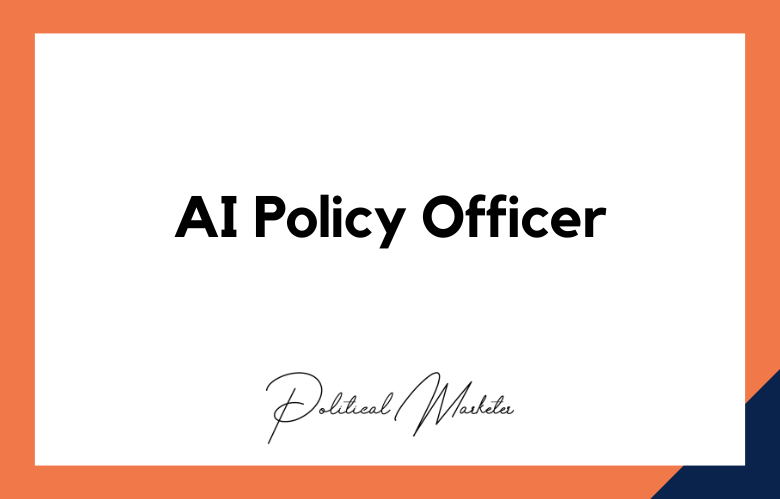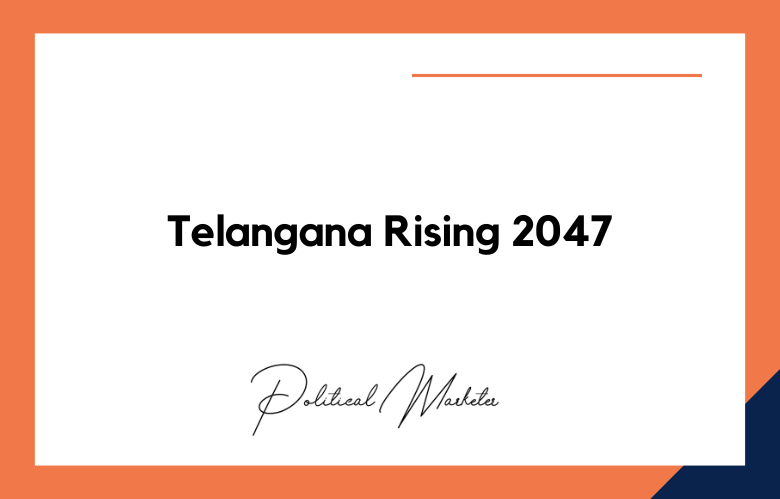Vote bank politics is a phenomenon that is prevalent in many countries around the world. It is a strategy in which political parties target specific groups of voters to secure their loyalty. This can be achieved through various means, such as delivering targeted policies and programs, making promises particular to the group’s needs, or even exploiting fear and anxiety.
But what are the economics of votes, and how do they affect the outcome of elections? I will delve deeper into vote bank politics and explore how it impacts the economic landscape.
The concept of vote bank politics is closely related to the median voter theorem, which suggests that political parties often target the median voter’s preferences to secure the most votes.
However, in vote bank politics, parties focus on a smaller group of voters who they believe are likely to vote for them regardless of their stance on other issues. These voters typically belong to a particular community, caste, religion, or socioeconomic background.
Unveiling the Sneaky Game: Understanding Vote Bank Politics
Vote bank politics is a term often used to describe the practice of political parties targeting specific sections of the population to secure their support in elections.
It is a strategy that involves identifying and wooing particular groups of voters based on their caste, religion, language, regional identity, economic status, or other demographic factors. This form of politics focuses on short-term gains rather than long-term development and emphasizes emotive issues rather than substantive policy.
The roots of vote bank politics can be traced back to the early days of Indian democracy when politicians realized the importance of mobilizing different sections of society to win elections. Initially, this involved appealing to voters’ economic interests and aspirations, with political parties promising to deliver development and improve the people’s living conditions.
Demystifying Vote Bank Politics: A Closer Look
Vote bank politics has been a subject of much debate and criticism in the Indian political landscape. The term refers to the practice of political parties catering to specific groups of voters to garner their support in elections.
Many have viewed vote bank politics as a regressive and divisive system that prioritizes narrow interests over the country’s more extensive welfare.
One of the most commonly cited examples of vote bank politics is the caste system in India. Political parties woo voters from specific castes, promising more excellent representation and protection of their rights. This has resulted in the proliferation of identity politics, whereby political parties offer sops to particular communities to secure their votes.
The Art of Political Manipulation: Decoding Vote Bank Politics
Political manipulation has been a staple of politics since its inception. Decoding the tricks of the trade has always been an essential skill for anyone who desires to navigate the treacherous waters of politics. One method extensively used in contemporary politics is vote bank politics.
Vote bank politics refers to targeting specific groups of voters with promises of benefits or incentives to gain their votes. This technique has been adopted by political parties worldwide and has proven highly effective in influencing individuals’ voting behavior. The method is based on the realization that people vote for the party they believe will benefit them.
Vote bank politics typically involves identifying various groups, such as religious communities, caste groups, or linguistic groups, and promising them benefits that cater to their needs. Politicians cleverly disguise their true intentions with flowery words and attractive slogans. In many cases, parties claim to prioritize welfare policies, social security, and human rights, amongst others.
Vote Bank Politics: The Hidden Power Behind Electoral Strategies
Definition of Vote Bank Politics
Vote bank politics is an electoral strategy used by political parties to gain support from certain societal groups. This is done by appealing to these groups’ interests and beliefs and offering them incentives or rewards for their votes. Vote bank politics can also divide the electorate and create divisions between different sections of society.
Targeting Specific Groups
Political parties often use vote bank politics to target specific groups in society, such as ethnic minorities, religious communities, or social classes. By appealing to these groups’ interests, politicians can gain their support and increase their chances of winning an election.
Use of Media
Politicians often use the media to spread their message and reach potential voters. They may use television advertisements, radio broadcasts, or online campaigns to promote their policies and attract support from certain societal groups. Politicians may also use social media platforms such as Twitter or Facebook to engage with voters directly and encourage them to support their party.
Promises & Incentives
Politicians may also offer promises or incentives to gain votes from certain sections of society. These could include financial aid for education or healthcare, job creation schemes, business tax cuts, or even freebies like food or clothing items. By offering these incentives, politicians can attract more votes from targeted societal groups.
Divide & Rule Strategy
Vote bank politics can also be used as a divide-and-rule strategy by political parties to weaken rival parties’ support base among certain sections of society. This is done by offering incentives only to specific areas of society while ignoring others, thus creating divisions between different parts of the electorate that the ruling party can exploit during elections.
Impact on Democratic Processes
The use of vote bank politics has been criticized for its impact on democratic processes, as it encourages politicians to focus on winning votes rather than addressing issues that are important for all citizens regardless of their background or beliefs.
It has been argued that this type of electoral strategy undermines democracy by allowing politicians to buy votes instead of earning them through honest debate and policymaking efforts that benefit all citizens equally.
Role of Money Power
Money power plays a significant role in vote bank politics, enabling political parties to offer financial incentives or rewards in exchange for votes from targeted societal groups. Money power has been criticized for creating an unequal playing field between wealthy political parties and those without access to significant funds who cannot compete with larger rivals when buying votes through offers and promises made during election campaigns.
Influence on Election Outcome
Vote bank politics can significantly influence election outcomes. It allows political parties with access to large amounts of money power an unfair advantage over smaller rivals who do not have access to such resources when it comes to buying votes through offers made during campaigns.
Therefore, this type of electoral strategy can lead to skewed results where one party wins despite having little support among the general population due to its ability to purchase more votes than its rivals.
Vote Bank Politics Exposed: Unmasking the Tactics
Vote bank politics is the manipulative practice of targeting specific groups of voters based on their demographic, religious, or cultural backgrounds to gain political mileage. This nefarious tactic has long been the bane of democracy, as it is based on dividing people along identity lines and exploiting their fears and insecurities.
The main tools used in vote bank politics are propaganda, polarization, and pandering. Politicians use various forms of propaganda to stoke emotions and stir up insecurities among different voters. They manipulate language and symbolism to create an aura of exclusiveness and superiority among their targeted groups.
Polarization is another tool for creating a “us versus them” mentality among voters. Politicians often pit one group against another, playing on their fears and anxieties to create a strong sense of identity and loyalty. This, in turn, leads to the creation of vote banks that can be relied upon during elections.
The Influence of Vote Banks: An In-depth Analysis
Vote banks are known to play a pivotal role in Indian politics. Several politicians have been known to use the concept of vote banks to sway the electorate. The influence of these vote banks in Indian politics is an exciting area of study. It calls for an in-depth analysis of the various factors that shape the dynamics of these vote banks and their close association with political parties.
Vote bank refers to people within a particular community or caste who vote as a bloc primarily because of their shared ethnic, religious, or linguistic identity. In India, vote banks are organized mainly by religion, caste, and language. These groups can significantly impact the outcome of elections, particularly in constituencies with a significant population of a particular community.
Cracking the Code: Unraveling the Secrets of Vote Bank Politics
Vote bank politics has become widely discussed in many democratic countries worldwide. It involves political parties or candidates aligning themselves with specific demographic groups to secure their votes.
This type of politics is centered on identity politics, where people identify themselves not just by their characteristics but also by their collective identity, such as religion, caste, language, or regional affiliation.
While vote bank politics is practiced in many democracies, it is particularly prevalent in India, which has a diverse population with various ethnic and religious communities.
In India, politicians often use divisive rhetoric, appealing to the emotions and sentiments of various religious and ethnic groups, to secure their votes. For instance, they may make promises to allocate more resources for the development of particular regions or to provide special privileges to specific communities if elected to power.
Vote Bank Politics: The Weaponization of Identity
Vote bank politics, or identity politics, is a tactic political parties use to gain support from particular demographic groups based on their identities, such as religion, caste, ethnicity, gender, etc. It involves appealing to raw emotions and nurturing a sense of communal identity, often at the expense of broader public interest.
The weaponization of identity in politics harms democracy, creating a divisive atmosphere by promoting group interests over the national interest. By engaging in vote bank politics, political parties emphasize differences between groups and exacerbate existing social cleavages instead of erasing them. This creates an environment of hate and mistrust between groups, leading to societal violence and unrest.
The Game of Numbers: Vote Bank Politics Simplified
Recently, vote bank politics has emerged as a significant driver for political parties to garner support from a particular group of people. The Game of Numbers has become one of the critical strategies political parties employ to secure their position in the elections.
This strategy involves identifying groups of people who can be mobilized based on their shared cultural, social, or religious identities. Political parties offer specific incentives to these groups, such as reservations, subsidies, or other benefits, to secure their support in the elections.
The concept of Vote Bank Politics is familiar and has been practiced in India since the colonial period. In the early days, it was primarily based on caste and religion. However, Vote Bank Politics has evolved to take on additional facets. For instance, now, it encompasses a vast range of socioeconomic factors, including income, education, and occupation.
Conclusion
Vote-bank politics is a complex phenomenon with profound implications for a country’s economic landscape. While political parties may believe that it is a rational strategy for securing the support of a particular group of voters, it can have negative consequences in the long run.
The critical challenge for policymakers is balancing different groups’ demands while ensuring that policies and initiatives promote economic growth and development. Ultimately, the true potential of democracy can only be realized when political parties focus on delivering transformative policies that benefit all citizens.
Political willpower and comprehensive economic policies that benefit all citizens- not just a few vote banks – provide the best solution. With a more inclusive approach to governance, the country can benefit from sustainable economic growth, an end to the wealth gap, the development of disadvantaged areas, and the strengthening of societal and financial harmony.
The Economics of Votes Exposed: What Vote Bank Politics Really Costs and Who Pays the Price – FAQs
What is vote bank politics?
Vote bank politics refers to the practice where political parties target specific communities or groups to secure their votes through appeasement, promises, or preferential treatment, often ignoring broader national interests.
Why is it called a “vote bank”?
The term “vote bank” implies a reliable segment of the electorate that consistently supports a particular political party, much like funds reliably stored in a bank.
Who benefits from vote bank politics?
Political parties benefit by securing predictable voter blocs, while the targeted communities may receive short-term incentives or policy promises.
Is vote bank politics a global phenomenon?
Yes. While especially prevalent in countries like India, forms of vote bank politics exist in the U.S., UK, and other democracies where identity-based voting is common.
What are the main types of vote banks?
Vote banks can be based on caste, religion, region, language, occupation (like farmers or workers), gender, or economic class.
How does vote bank politics influence elections?
It shapes candidate selection, campaign messaging, and policy focus, often leading parties to favor certain communities for electoral gains.
Is vote bank politics legal?
While legal, it is often criticized for violating the spirit of democracy by promoting favoritism, identity politics, and social division.
How does vote bank politics differ from inclusive representation?
Inclusive representation aims for balanced development and equal rights for all. Vote bank politics targets selective appeasement without broader accountability.
What are the dangers of vote bank politics?
It fosters divisiveness, encourages polarization, undermines merit-based governance, and may alienate communities not part of the “bank.”
Does vote bank politics lead to policy distortion?
Yes. Policies may be tailored to benefit specific groups at the expense of national or inclusive priorities, leading to inefficiency or bias.
How is social welfare different from vote bank appeasement?
Social welfare is rooted in rights-based and inclusive approaches. Vote bank appeasement is often temporary, selective, and politically motivated.
What is the role of media in vote bank politics?
Media can either highlight or enable vote bank politics through selective coverage, biased narratives, or amplifying identity-based issues.
Can vote bank politics be countered?
Yes. Through voter awareness, electoral reforms, data-driven governance, and parties shifting toward issue-based politics.
Do political manifestos reflect vote bank politics?
Often. Manifestos may contain community-specific promises to appeal to particular voter groups.
How do identity politics and vote bank politics relate?
Vote bank politics is a practical outcome of identity politics, where parties mobilize support around caste, religion, or ethnic identity.
Are alliances formed based on vote banks?
Yes. Political alliances are frequently calculated based on the combined strength of each partner’s vote bank.
What is the impact of vote bank politics on governance?
It can result in biased decision-making, corruption, neglect of merit, and short-term populism over long-term development.
Can vote bank politics coexist with democracy?
While it exists within democratic systems, excessive reliance on vote banks can erode democratic values and institutional fairness.
What reforms can reduce vote bank dependency?
Reforms may include transparent governance, accountability mechanisms, universal development agendas, and civic education.
What is the future of vote bank politics in India and beyond?
With increasing voter literacy, data transparency, and youth engagement, there may be a gradual shift from identity-based to performance-based politics.










